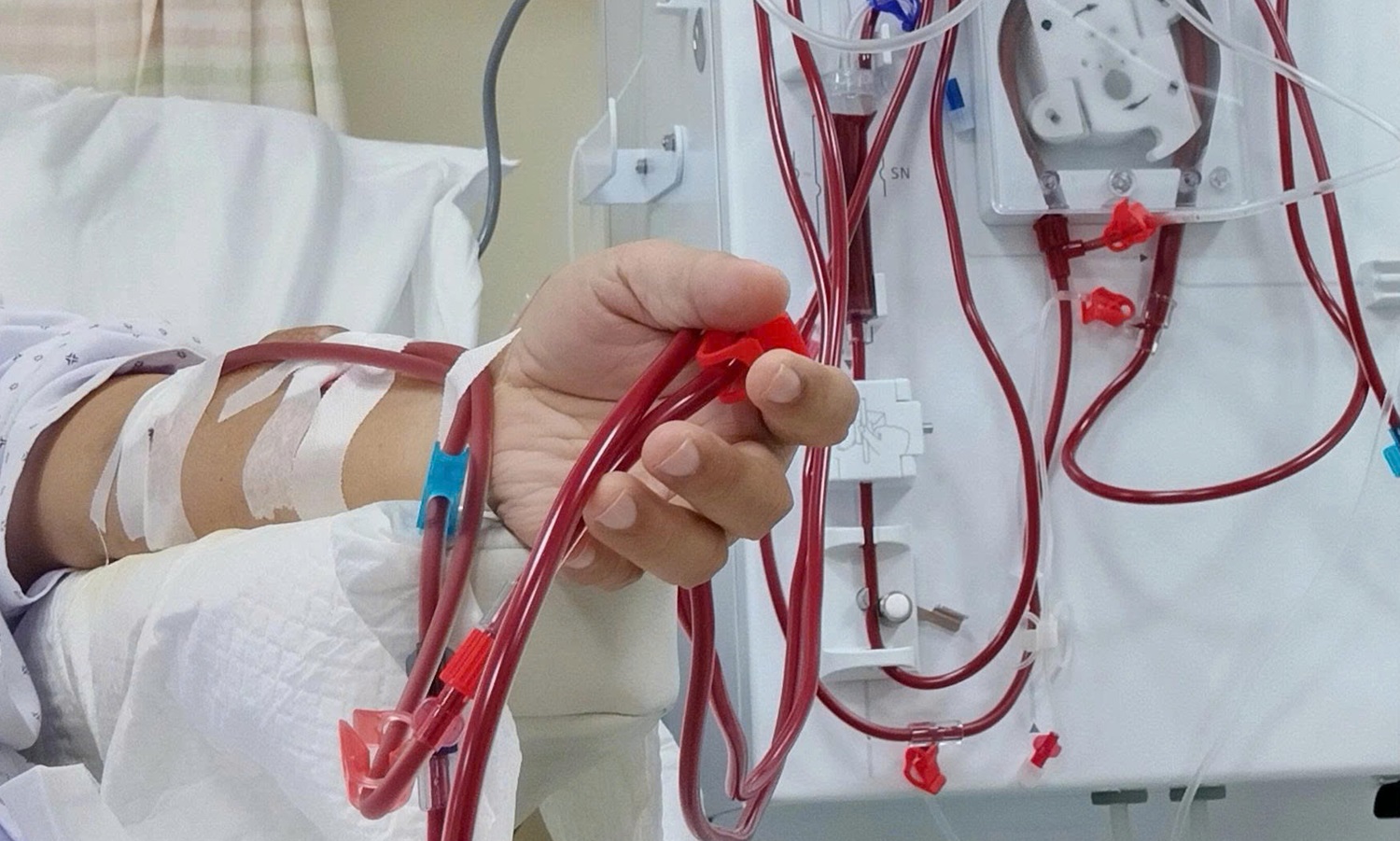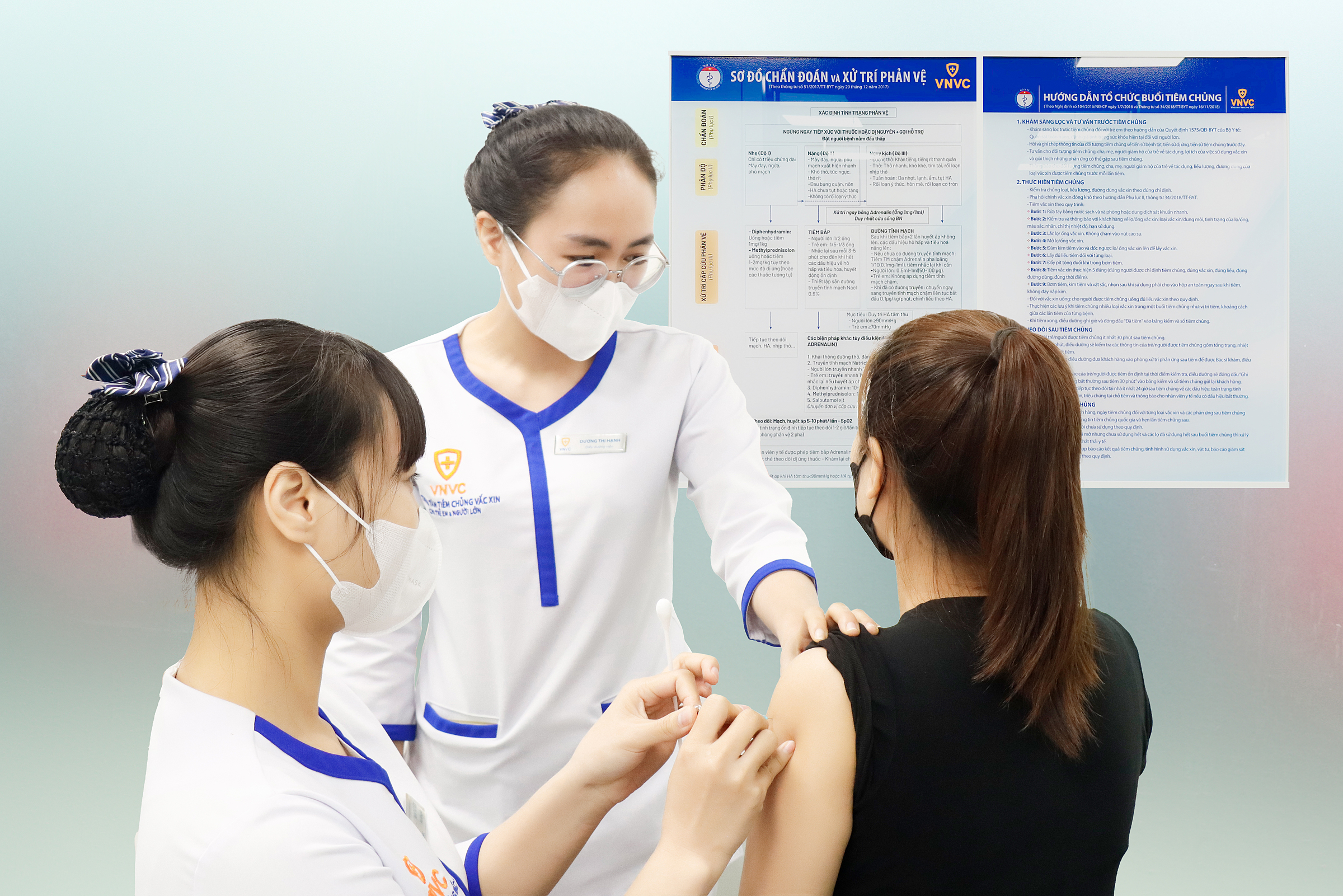Doctor Nguyen Nhu Dien, Medical Manager of the VNVC Vaccination System, highlighted this amid a nationwide surge in dengue fever cases. Many patients suffer multi-organ damage, including acute kidney injury requiring continuous dialysis.
 |
Patients with acute kidney injury from dengue fever require continuous dialysis for many hours or days. Illustrative photo: Dinh Tien |
Acute kidney injury is a dangerous complication of dengue fever. The mechanism leading to this condition is not yet fully understood. Doctors have proposed several theories, such as the virus directly attacking and damaging kidney tissue. Fluid leakage causing blood thickening or unstable hemodynamics reduces blood supply to the kidneys, decreasing the glomerular filtration rate. Patients may also experience skeletal muscle breakdown, causing damage or blockage of the renal tubules, or the virus may cause glomerulonephritis.
According to Dr. Dien, acute kidney injury is a serious complication, increasing the risk of death and creating a significant financial burden for treatment. The mortality rate can reach 50%, according to a study published in the Vietnamese Medical Journal, based on data from 40 children with severe dengue fever who required continuous dialysis at the Intensive Care Unit - Poison Control Center, Children's Hospital 1 and the Department of Infectious Diseases, Children's Hospital 2, from 1/2017 to 12/2021.
Patients can also develop acute kidney injury after recovering from dengue fever, as exemplified by Mr. Vinh, 49, who was admitted to Tam Anh General Hospital in Hanoi in 1/2024. Currently, there is no specific treatment for dengue fever, and treatment protocols depend on the progression of the disease, including fever reducers, fluid replacement, mechanical ventilation, dialysis, and plasma exchange.
 |
Adults receive the dengue fever vaccine at VNVC Vaccination Center. Photo: Moc Thao |
Dengue fever is an infectious disease caused by the Dengue virus, transmitted from person to person primarily through the bite of the female Aedes Aegypti mosquito. There are four serotypes that cause the disease: Den-1, Den-2, Den-3, and Den-4. A person can contract dengue fever up to four times, with the risk of severe illness increasing with each subsequent infection.
"Prevention is better than cure," Dr. Dien stated, recommending that people avoid mosquito bites by sleeping under mosquito nets even during the day, wearing long-sleeved clothing, and using mosquito repellent creams or sprays. He also emphasized the importance of cleaning mosquito breeding grounds and emptying stagnant water in buckets, pots, and drains around the house.
Vaccination is an effective preventive measure. Vietnam currently uses the Qdenga vaccine produced by Takeda Pharmaceuticals, indicated for children 4 years and older and adults. The vaccination schedule consists of two doses, 3 months apart. The vaccine reduces the risk of contracting dengue fever by over 80% and the risk of hospitalization by over 90%. Women should complete the vaccination schedule before pregnancy, ideally three months and at least one month prior.
Hoang Duong












